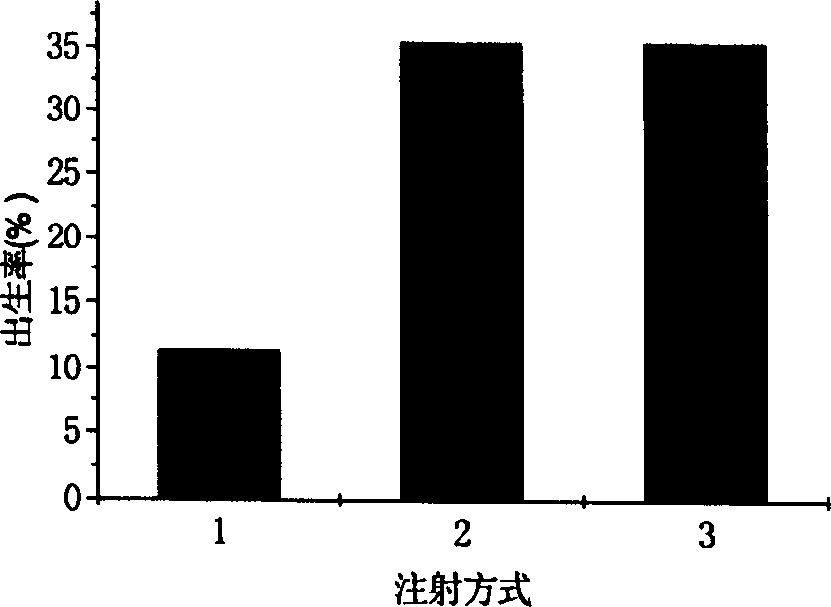Method for transferring exogenous gene into animal cell
A technology of exogenous genes and animal cells, applied to other methods of inserting foreign genetic materials, using microinjection methods, using vectors to introduce foreign genetic materials, etc., can solve problems such as difficulty in mastering, instability, and low birth rate
- Summary
- Abstract
- Description
- Claims
- Application Information
AI Technical Summary
Problems solved by technology
Method used
Image
Examples
Embodiment Construction
[0014] Our laboratory uses the mouse histone H2AZ (mH2AZ) as a nuclear localization signal to promote the integration of the transgenic construct bovine α-s1-casein-human G-CSF expression vector on the host chromosome, that is, the target gene expression construct and the mH2AZ gene The expression components are co-injected into the fertilized egg cytoplasm, and the target gene expression components are brought into the prokaryon by the directional migration of nuclear localization proteins. The results of this example show that the method used can bring the target gene expression components into the host cell nucleus to obtain transgene integrated mice, and this method is more convenient, practical, and easy to promote, and can bypass the bottleneck of pronuclear injection technology and avoid fertilized eggs. A large number of injuries, promote the widespread application of transgenic animal technology. Therefore, this transgenic approach can completely replace the tradition...
PUM
 Login to View More
Login to View More Abstract
Description
Claims
Application Information
 Login to View More
Login to View More - R&D
- Intellectual Property
- Life Sciences
- Materials
- Tech Scout
- Unparalleled Data Quality
- Higher Quality Content
- 60% Fewer Hallucinations
Browse by: Latest US Patents, China's latest patents, Technical Efficacy Thesaurus, Application Domain, Technology Topic, Popular Technical Reports.
© 2025 PatSnap. All rights reserved.Legal|Privacy policy|Modern Slavery Act Transparency Statement|Sitemap|About US| Contact US: help@patsnap.com



